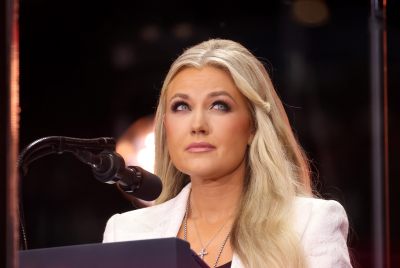Zimbabwe Plans to Kill 50 Elephants in 2025 After Culling 200 Last Year: Here's Why
The move comes after a devastating drought hit Southern Africa last year

Zimbabwe has announced plans to cull at least 50 elephants, sparking global outrage and reigniting a fierce ethical debate over wildlife conservation and food security. On 4 June, permits for the cull were issued by the Zimbabwe Parks and Wildlife Management Authority (ZimParks) to the Save Valley Conservancy, a private game reserve in southeast Zimbabwe.
Why Is Zimbabwe Culling Elephants?
In a statement to ABC News, a ZimParks spokesperson said the decision was part of an elephant population management exercise. Data from a 2024 aerial survey revealed 2,550 elephants in the Save Valley Conservancy, far exceeding the reserve's ecological capacity of 800.
ZimParks stated that over 200 elephants have already been relocated from the reserve over the past five years. Zimbabwe currently hosts the second-largest elephant population in the world, following Botswana. The agency also announced that the meat from the culled elephants will be distributed to local communities, while ivory will be kept under state control.
While the agency said relocation remains the preferred option, the cull will help gauge the costs of such measures. The actual number of elephants to be killed will depend on which herds are encountered during the operation.
Reeling from Climate Disaster
Zimbabwe continues to reel from the devastating El Niño drought that struck in April 2024, crippling crop production and depleting drinking water supplies across the country. In response to escalating food insecurity, Zimbabwe previously culled over 200 elephants in September 2024, distributing the meat to hungry citizens—similar to measures taken in neighbouring Namibia.
The United Nations identified Zimbabwe as a hunger hotspot, warning of acute food insecurity. In April, Zimbabwean authorities declared a national state of disaster, revealing that 57 percent of the rural population faced food shortages.
Animal Rights Groups Slam the Move
The announcement has prompted fierce backlash from international animal rights organisations, who argue that the Zimbabwean government is using the crisis as an excuse to undermine long-term conservation.
The World Animal Protection Agency condemned the September cull of 200 elephants and has now spoken out again, insisting that killing elephants will not solve the country's systemic food crisis.
'World Animal Protection believes true sustainability lies in finding ways to support both the people and the planet without sacrificing one for the other,' the agency stated.
A Deepening Ethical Crisis
Zimbabwe's latest elephant cull sits at the centre of a complex ethical conundrum: Can the urgent needs of a starving population justify the killing of endangered animals?
As CNN and other outlets report, climate change continues to escalate food and water shortages across southern Africa. In the face of such pressure, governments like Zimbabwe may increasingly find themselves making morally fraught choices.
While Zimbabwe insists that the move is a practical measure to combat an immediate humanitarian crisis, conservationists argue that such short-term fixes risk long-term ecological damage. The debate continues—as do the consequences.
© Copyright IBTimes 2025. All rights reserved.





















